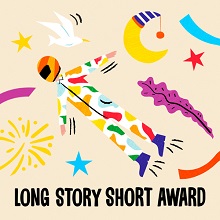Out in the world, no one sleeps. No one, no one.
No one sleeps.
—Federico García Lorca, "Sleepless City (Brooklyn Bridge Nocturne)"
Madrid 2007. Sometime after 3 am. In six hours, I'll be
...
[+]
Edward Abbey wrote his book Desert Solitaire in a similar setting, though in a time less crowded. He too experienced crowds, observed people, and worked with others on his days off. Yet he too found the solitude for reflection. Perhaps reflection is the wrong word. Revel would be a closer description of his experience of environmental solitude. Sometimes such experiences awaken a primal need to protect the setting of our solitude. Many of the resulting cult of environmentalists quickly realize that our species is the greatest threat to the environment they love. The logical step is not immediately to remove us from the environment, but to stop us from touching. Like a museum, they place it under glass, only to realize, too late, that as we stare through our glass at the cliffs, trees, streams, mammals, reptiles, and arachnids, it is not the environment but we, in our tiny boxes—display cases that we call houses and cars—who are under glass. Abbey takes a different approach. He does not believe in saving the environment, he believes in taking our place as part of the environment, and that the environment will then save itself. We are, after all, animals like the rest. The primary difference between us and our wiser natural counterparts is that we have some elitist idea that we have somehow graduated from the ranks and files of other mammals to a station above the world in which we live. But the clear commandment remains, “to dust thou shalt return.” Our hiatus must end, we must, with Abbey, return to the dust and revel in the solitude.
Earlier in the day, I walked up a river. The water was shallow and clear. Not wanting to wet my vestments, I took my shoes off, stuffed my socks down inside, tied the laces together, and hung them around my neck like a priest’s stole. I was reminded of Moses removing his shoes to approach the burning bush. I was the priest of the desert. Barefooted, I step into the burning water. It was the burning of heat, not flowing into my naked foot-sole, but flowing out to mix with the river, to be eaten and disappear forever, leaving nothing but chilled feet on hard rocks in running water. The illusion goes with the heat. I am not a priest. This is not holy ground. There is no meaning in this experience. But to dust I have returned, and I am contented.
I’m back in my redrock perch on the wall of the canyon. Still without meaning. Still devoid of purpose. I am hungry. I am in the desert. Tomorrow I will start my fast for “man shall not live on bread alone, but on every beauty that proceedeth forth out of the mouth of nature.”
The next day comes and with it my fast. We start a new hike. This time it is not up a cold river to see a waterfall; it is over hard slickrock to see what has become the most iconic seven thousand tons of landscape in the state. I have seen Delicate Arch on license plates, desktop screensavers, postcards, and calendars my whole life. I’ve never been impressed. Having reached the top, I am even less impressed. The arch itself is small. It looks like no more than an anchor point on which God would connect his carabiner to carry the earth as a keychain. While I find the arch itself unworthy of the sycophantic crowds, the surrounding terrain is breathtaking. The arch is perched precariously on the top of a mesa with hard rock cliffs and sculpted bowels twisting and writhing around every step. I am surprised but not upset at the lack of safety features around this iconic landmark where the better part of 1.5 million pilgrims come each year to pay their respects to the gods of the bureau. Abbey too would be proud of this liability oversight. “Let them take risks,” He says, “for Godsake, let them get lost, sunburnt, stranded, drowned, eaten by bears, buried alive under avalanches—that is the right and privilege of any free American.”
The wilderness has worked in me. I have not been able to take my place in it as Abbey would urge, but I have experienced it in new ways. For Terry Tempest Williams, the desert is more than a place or a system or a single experience. It is a philosophy, a refuge, therapy, eroticism, release, meditation, peace, necessity, color, connection, healing, danger, family, responsibility, and fantasy. I have not experienced most of these aspects of the desert. I still cannot cut myself and bleed red sand. Just as I found in the river, there is no meaning for me here. But I am content. I have searched for meaning, for philosophy, in my life through many years without finding it. Now I am beginning to understand that meaning is a specter of story. My life does not need meaning; it needs simple pleasures and quiet beauty. Here, in the desert, I have not found meaning, but I have found beauty...
On the very top of Delicate Arch there is a single plant stretching nine crooked branches trembling toward the dry blue sky.



